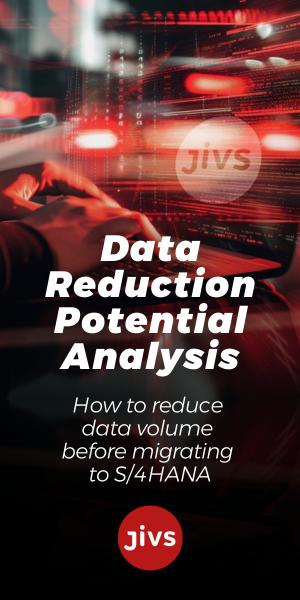Sustainability impacts the lives of ordinary citizens -from food and water shortages, to health and pollution, to skills and wage gaps. We find ourselves on the brink of a crisis, driven by human activity, that has dramatically impacted life as we know it today and continues to threaten the future of our planet. Amid this volatility, businesses are called to play a more direct role in social, environmental, and ethical issues. Today, most consumers and citizens trust businesses more than any other institution to solve global problems. With trust, comes responsibility and accountability. Together, as a global business community, we have a once-in-a-lifetime opportunity to redefine the meaning of economics and accelerate progress towards a more sustainable world: one with zero emissions, zero waste, and zero inequality.
Business leaders increasingly recognise sustainability as the next frontier of digital transformation. In 2011, only 20 percent of S&P 500 companies reported their ESG scores. Today, a whopping 92 percent do. This critical issue has clearly made its way to the forefront of C-suite conversations, and as a result, we see CEOs stepping up to share their ambitions. However, significant gaps remain between frothy ambitions and consequential actions as businesses find themselves at the forefront of this problem solving.
One of the challenges of that responsibility is finding where to start. While we know that sustainability is unique to each industry, all organisations aim to drive the same three principal business outcomes. First, organisations recognise the urgent need to comply with global and local regulations. Deep transparency into financial and non-financial data helps address regulations, taxation, and sanctions proactively and ensures integrated, auditable, and real-time reporting. Second, businesses seek ways to decarbonise, reduce waste, and advance social equality and equity across supply chains and industry-wide networks. This requires embedding sustainability into core business processes. Third, sustainability leaders see the opportunity to create new business models, solutions, and products.
To achieve these outcomes, businesses must find ways to address the central challenges of data transparency and business process activation. 79 percent of organisations are dissatisfied with the quality of data at their disposal to drive sustainability transformation, which is reinforced by the fact that 86 percent of companies still use spreadsheets to measure emissions data. Furthermore, one third do not know how to integrate sustainability into their core business strategy, systems, or processes, and according to BCG, only 20 percent of sustainability initiatives embrace business model change.
Only technology can solve these challenges at the scope and scale required to meet the urgent demands. The majority of data sits in or can be accessed by an SAP system, showing the potential of SAP to address the full scope of sustainability transformation. SAP can also execute business process changes at scale to make sustainability core to your business with 88 percent of global supply chains running on SAP. With the ability to overcome scope and scale, technology helps organisations gain the deep, industry-specific insights and intelligence they need, combining operational, financial, and experiential data, across value chains. With these insights, organisations can embed sustainability into business processes across their enterprises and larger business networks, embedding sustainability metrics into every function of the business and ultimately undergoing the digital transformation required to become intelligent, sustainable enterprises.
To achieve these outcomes, businesses must find ways to address the central challenges of data transparency and business process activation
No one can solve these challenges alone. SAP’s ecosystem approach to sustainability combines the best of our solutions, partnerships, start-ups, and collaboration with global organisations to enable us all to deliver on our sustainability ambitions. See some examples of this below:
• SAP solutions: SAP Cloud for Sustainable Enterprises offers a comprehensive portfolio of services that empower businesses to build sustainable products, services, and business models with holistic view into data, processes, and regulations.
• Partnerships: SAP has joined forces with BCG, Accenture, and others to co-innovate and combine industry expertise. For example, SAP’s strength as the leading enterprise software company, and BCG, with its sustainability consulting and analytics expertise, work together to deliver end-to-end sustainability transformation. Similarly, SAP and Accenture shape digital transformation through solutions such as the co-development of SAP Responsible Design and Production, which helps companies gain greater visibility into the lifecycle costs and planetary impact of their design choices.
• Start-ups: SAP also supports the growth of new value networks through SAP.iO, which accelerates the growth of start-ups and connects them to SAP customers. More than 90 SAP.iO companies focus on solving sustainability problems, including Feather by SAP, which helps brands and retailers take back, manage, and resell pre-owned inventory.
• Global collaboration: SAP customers can go beyond traditional 1-on-1 business partnerships by unlocking extensive data networks linked between a consortium of companies. SAP and WBCSD recently announced their first exchange of emissions data across different tech solutions with The Partnership for Carbon Transparency (PACT). Automotive companies can also join Catena-X Automotive Network, a sustainable, intelligent, and robust ecosystem for the secure exchange of data.
If we want to meaningfully impact the current environmental and social trajectory of the planet, businesses must step up and close the gap between ambition and action by embracing sustainability as the next frontier of digital transformation. With SAP’s solutions, co-innovation, and a global ecosystem of partners, companies are better positioned than ever before to make everyday business decisions that deliver on their net-zero emissions goals with agility and accuracy, reduce and reclaim waste throughout the value chain, and advance social responsibility. Let’s build a future we can be proud of.






